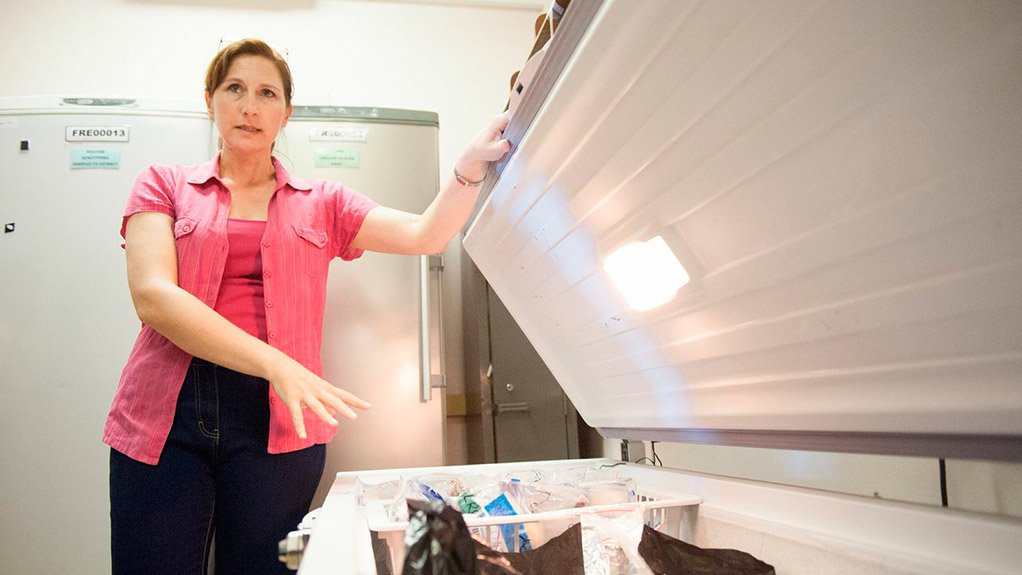There is a need to develop a database for every threatened species in the world – not just rhinos, says Dr Cindy Harper from the University of Pretoria’s Veterinary Genetics Laboratory.
Harper heads up the Rhino Index System (RhODIS), which houses DNA samples of thousands of dead, poached and live rhinos in the region.
The big breakthrough was extracting DNA from rhino horn, which turned out to be much more than dead, compressed hair. In fact, DNA can be found in trace amounts of horn left in an ‘empty’ bag.
RhODIS was first used in a rhino poaching case in 2010, resulting in a Vietnamese citizen being sentenced to ten years imprisonment for having rhino horns from poached animals in his possession. He was apprehended at the OR Tambo International Airport.
Since then RhODIS has had multiple successes in linking the DNA found in rhino horn to specific poaching events, and even to specific tools, such as machetes, used in the crime.
“The database can put people at the scene of the crime,” says Harper.
“The rhino project is a big flagship project for us, but we can do the same with lions and elephants. The idea is to have an international databases of threatened species everyone in the world can use,” she adds.
African elephants are poached for their ivory tusks, while a number of lions bred in captivity are, legally, killed for their bones.
Lion bone is used in lifestyle and traditional medicine products in some Asian countries, as an alternative to tiger products.
The danger exists that wild lions will be increasingly targeted to fill market demand, says Harper.
The rhino database, however, was only established once poaching levels had already reached crisis levels, and project funding started to trickle through.
“Too late is becoming a reality for a lot of species,” notes Harper.
The benefits of starting a database early on include mapping the lion bone trade before it increases in sophistication.
A rhino death in the Kruger National Park was linked to a horn seizure in Singapore, six weeks after the crime, indicating just how swiftly the illegal global rhino horn networks operate, says Harper.
13 000 SAMPLES, AND COUNTING
Harper and her team has grown RhODIS to 13 000 DNA samples over the last five years.
The database is split into two parts: Live rhinos, which have their DNA stored in an attempt to safeguard them, and forensic police cases.
A thousand and four rhinos were poached in South Africa last year, up from 668 deaths in 2012.
Forensic cases make up around 2 000 of the 13 000 samples. However, notes Harper, one case can involve several rhinos.
RhODIS now receives the DNA from every criminal case, which was not the case when the database started.
The database is working, adds Harper.
“We are getting more and more recoveries across the world.”
The live rhino samples are not analysed, as the RhODIS team does not have the funding to do so. Forensic casework is paid for by the Department of Environmental Affairs.
RhODIS now also receives DNA samples from Namibia, as well as Malawi.
Kenya is working towards establishing an East Africa DNA hub, with the help of RhODIS.
Apart from receiving DNA samples in poaching cases, through a carefully managed chain of custody, Harper and her team also supply the police with free forensic collection kits.
EMAIL THIS ARTICLE SAVE THIS ARTICLE
To subscribe email subscriptions@creamermedia.co.za or click here
To advertise email advertising@creamermedia.co.za or click here











